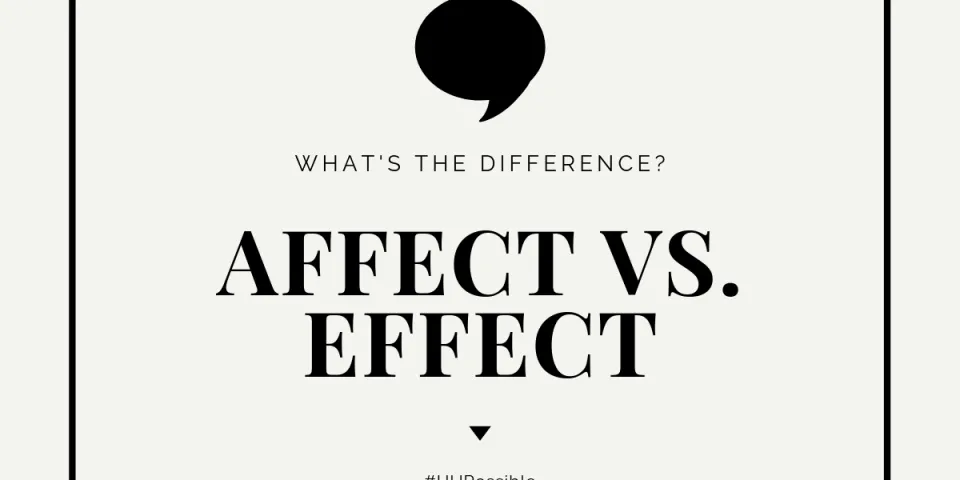Latest 
 Career Development Denise Alexander
Career Development Denise Alexander
Recent Blog Posts


Some words sound the same but have completely different meanings depending on how they are spelled and used in a sentence. Words like to, too and two, or there, their and they’re, can confuse many writers.
For this lesson in grammar, let’s focus on the difference between affect and effect. The word “affect” is most often used as a verb, while “effect” is most often used as a noun.
For example: If an event affects your life, you will feel the event’s effect.
Affect means to produce a change in someone or something.
Use effect if you are describing the result of a change, or the outcome an action or event.
Hint: The RAVEN is always right!
If you are debating on which word to use, consider the context of the sentence. Am I using a verb or a noun here? Is a person actively doing something, or is this about the result of the situation?
A helpful hint comes from vocabulary.com. They suggest thinking of Edgar Allen Poe and his RAVEN:
Remember: Affect = Verb. Effect = Noun
If you ever get stuck on effect vs. affect, think of the Raven!
Here’s another trick: Affect and action both begin with the letter “a.” When you think “affect,” think “A for action.”
In certain cases, effect can be used as a verb that means “to bring about” or "to cause." It usually shows up next to nouns like “change” or “solution.”
Affect can also be used as a noun to identify a feeling, mood or emotional state or response. It's rare for affect to be used this way in everyday language.
Using the wrong format of a word can change the meaning of your sentence entirely. Proper grammar and spelling is essential if you want to improve your writing skills, which are vital for your academic and career success.
For more writing help, visit our Writing Center online. Our writing coaches can help you revise your essays for clarity and flow and show you proofreading strategies to catch common grammar and spelling errors like these.
BLS pay estimates calculate the median annual wage for various occupations. Per the BLS the median wage for an occupation is: "The wage at which half of the workers in the occupation earned more than that amount, and half earned less. Median wage data are from the BLS Occupational Employment and Wage Statistics survey." Bureau of Labor Statistics (BLS), U.S. Department of Labor, Occupational Outlook Handbook 2024. BLS median wage estimates do not represent entry-level wages and/or salaries. Multiple factors, including prior experience, age, geographic market in which you want to work, and degree level and field, will affect career outcomes, including starting salary and earnings as an experienced employee. Herzing neither represents that its graduates will earn the median salaries calculated by BLS for a particular job nor guarantees that graduation from its program will result in a job, promotion, particular wage or salary, or other career growth.
Get the latest news you need to know, from study hacks to interview tips to career advancement. Have it delivered right to your inbox biweekly.